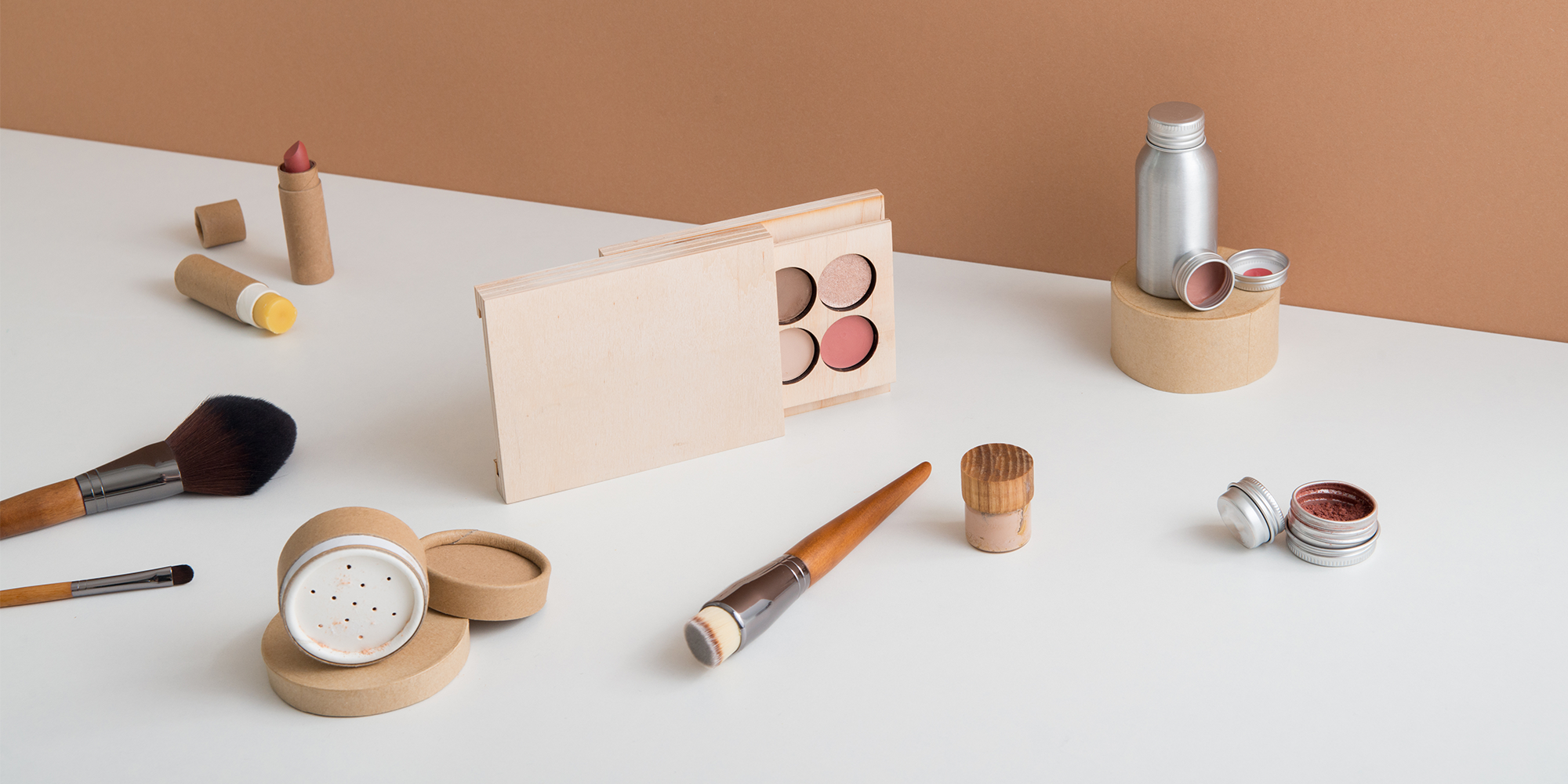
Beauty Editors Share Their Greenwashing Frustrations And The Sustainable Efforts They’d Like To See From Brands
The topic of sustainability brings up more questions than answers. Should brands really have to be responsible for the planet or is climate change a problem that should be left up to governments? If brands should be involved, is it up to smaller brands to initiate change or larger conglomerates? Do initiatives such as carbon offsetting and recyclable packaging help? Will refill actually become mainstream?
There’s a lot of work that needs to be done. As someone on the sustainability beat, that work can seem overwhelming and at times futile to even cover. After all, not every brand has a Patagonia-esque commitment to sustainability or impact on it.
To get a temperature check on how other journalists feel about the beauty industry’s approach to sustainability, we decided to ask them about it. As some of the editors ahead will stress, the only way for a brand to be truly sustainable is if it doesn’t exist. For brands that exist, the general consensus is that they should put in a concerted effort to be environmental stewards and be honest about their shortcomings.
Katie Becker, a freelance beauty writer and consultant, says, “If you’re transparent about your journey to be better and not pretending you’ve got it all figured out, editors will really respect your realness.”
Ahead, Becker joins fellow beauty journalists in unloading greenwashing frustrations, sharing the brands they think are doing a decent job, and advising companies on ways they can improve.

Megan McIntyre, Beauty Writer and Consultant
What constitutes a sustainable beauty brand?
For me, sustainability means accountability. Brands need to hold themselves accountable to the consumer, to the environment and to the communities where they are sourcing and producing their products. It means looking at the impact that the products, packaging and ingredients have on the environment and communities at every step—from farming of the ingredients to manufacturing to the end life of the product and package.
We know that recycling isn’t working and never really was, for instance, so we have to go one step further and make sure that we are providing ways for the customer to easily send back packaging. Or, better yet, use compostable or biodegradable packaging. We know that certain natural ingredients like palm and vanilla can actually be devastating in their impact on the planet when they are farmed, so sometimes it’s better to use a synthetic alternative.
Are there certain sustainability claims that you consider greenwashing?
I think terms like recyclable, green and clean at this point are worthless terms because they don’t actually mean anything. They are open-ended and not clearly defined, marketing terms that everyone has latched on to but no one has put a stake in the ground and said this is the industry standard as to what this means. It’s the early aughts and natural all over again. Until there is an industry standard that everyone follows around them, we can’t say that those are better.
Where do you think brands or companies fall short when it comes to sustainability?
Packaging, definitely. We are still not there with recycling because the system was not designed for it. All the pumps and tiny pieces are just getting trashed. We need more refills that are actually good for the environment or just biodegradable packaging. We also need to have more brands be clearer about their product’s eco footprint and ingredients, and make it easier for the consumer to find the ingredients.
We as editors can tell people to read the label to learn about a product’s environmental impact until we are blue in the face, but, if there isn’t any real info on the label, it doesn’t do anyone any damn good. Everything is so confusing already for them, so there needs to be an industry standard on sustainability that holds the entire personal care industry accountable to eco-friendly packaging and ingredient safety.
What brands or companies do you think are doing a good job on the sustainability front?
Evolvetogether has an entire line called Zero Waste Gone Today that is waterless, plant-based formulas featuring 100% dissolvable packaging that disappears under running water. I love the brand so much and how they communicate their mission to customers so clearly. Plus is another brand that is housed in dissolvable packaging. Their body wash sheets come in sachets that dissolve in water, so you just use them in the shower and they dissolve as you wash.
I’m really impressed with the supplement brand Ritual, and their new push towards being even more upfront with customers about what’s in their products. They’ve released new traceable standards that let you go online to see all of the ingredients in the products, who the supplier is of each and the manufacturer. They also do human clinical trials and show the results. The supplement market is notoriously shady and unregulated, so having clear definitions is really key.
Another brand that stands out for that is Prima. They’ve gone the extra mile to be B Corp-certified, which is rare for a business and shows that they meet high standards of accountability, responsibility and transparency for social and environmental performance. They have a partnership with Pact to send back all of their packaging to actually be recycled called the Recycle for Real program, and are working towards making more and more of their products refillable.
Finally, there’s Experiment, which has a fully reusable sheet mask and has partnered with a company called Bluebird, a software platform that allows brands to verify their sustainability claims and provide that transparency to consumers. Basically, they can put their money where their mouth is and show consumers that their reusable Avant Guard sheet mask creates 93% fewer carbon emissions and 90% less waste with each use compared to single-use sheet mask. It actually independently verifies and quantifies something that, up until now, was just marketing flowery gibberish for the most part.
Any advice for brands or companies hoping to do better?
Stop trying to be cute with consumers and start getting real. We are in a full-fledged climate crisis and the situation is dire. We want real talk and you to show us you are serious, not give us more marketing speak that doesn’t actually say anything. Show us that you are taking this as seriously as we are. We want you to succeed at this, so help us help you by giving us real information and real positive action.

Stephanie Saltzman, Beauty Director at Fashionista
What constitutes a sustainable beauty brand?
There’s no such thing as a truly sustainable brand, beauty or otherwise. Putting more product into the world—no matter if its packaging, ingredients or philanthropic give-back—is never going to be the way to build a more sustainable world, particularly in a category that’s already as crowded as beauty. That’s why I think so many of the brands patting themselves on the back for being “sustainable” lately are coming off as inauthentic, opportunistic and hollow.
Are there certain sustainability claims that you consider greenwashing?
I think it can get tricky with packaging being marketed as “recyclable” or “reusable/refillable.” Recycling is so complicated, and so many different factors (local recycling availability/protocols, how well you clean out your empties, if you remove the pump) can go into determining whether something is truly able to go through the recycling process, so to use it as a blanket term can definitely sometimes verge on greenwashing.
With “reusable” and “refillable” claims, I think those are generally positive, but some brands have been doing this in ways that don’t really use common sense. Their refills are housed in packaging that uses just as much material as any standard packaging, and that could easily stand alone on a shelf. Sometimes, if you take a step back and look at the refills compared with the refillable outer shells, it’s like…this makes no sense.
To hawk those as waste-reducing “sustainable” refills when there’s no actual reason they need to be placed into some outer plastic tube confuses me. It’s clear that there was no one in the room at those companies pushing back or asking the right questions, like, is this logical? The teams were more focused on being able to check the “refillable” box and market their products that way than they were on delivering a real-world solution to beauty’s wasteful packaging problem.
What brands or companies do you think are doing a good job on the sustainability front?
I think Plus is really interesting with its super-mindful zero-waste approach. The brand concept is innovative and so well thought through. Sure, it’s a bit gimmicky, but it’s also actually offering a less wasteful alternative to body wash, and I love that it’s widely available and sold through mass retailers. Broad accessibility—and therefore, scalability—is crucial when you are talking about making an impact in sustainability.
Any advice for brands or companies hoping to do better?
My main piece of advice is something that doesn’t necessarily go hand in hand with scaling a business, so most entrepreneurs probably don’t want to hear it, but: Do less. Launch fewer items, and only do so when there is really, truly a need for them. Use less packaging, do fewer press and influencer mailers, and be more mindful that every single thing you’re doing is with a purpose.
If sustainability is really a priority, focus on making meaningful change within your company, questioning the status quo of how things have been done and figuring out real-world, practical solutions. Then, you will actually have something authentic to say about sustainability in your marketing.

Faith Xue, Executive Beauty Director at Bustle Digital Group
What constitutes a sustainable beauty brand?
“Sustainable” has become the new “clean,” a beauty buzzword with no set definition, so brands get away with using it in their marketing with no consequences. The truth is, there is no such thing as a truly sustainable beauty brand.
If you are launching a brand, no matter how much PCR plastic you use or natural ingredients you formulate with or recycling options you provide, it’s likely that somewhere in your production process, you are negatively impacting the environment. A truly sustainable beauty brand is one that doesn’t exist at all. If you are a brand launching a product similar to something already on the market, you’re not a sustainable brand. You’re just creating more waste.
Are there certain sustainability claims that you consider greenwashing?
Luxury or mass brands trying to tout refillable packaging as a sustainability angle without updating anything else in their production cycle like using virgin plastic packaging. Also, recyclable packaging is great, but at this point it’s the bare minimum—and still falls on the customer to do so at the end of the day.
Where do you think brands or companies fall short when it comes to sustainability?
Larger beauty conglomerates should focus more on finding ways to give back to underrepresented communities whose natural ingredients and resources they draw from, and employing fair wages to workers in every step of the supply chain.
What brands or companies do you think are doing a good job on the sustainability front?
At the end of the day, beauty companies exist to make money, but it’s encouraging to see some larger companies like Unilever making a genuine, thoughtful effort in employing sustainable practices in their production process and take an active, vocal stance on climate change. Smaller brands like Uni and Blueland offer options that didn’t exist to consumers before (in their case, chic, refillable personal care products you’ll actually want to use and display on your counter).
Any advice for brands or companies hoping to do better?
Not every beauty brand needs to be a sustainable beauty brand. I’d rather a brand be upfront about its strengths than lie about its weaknesses.
If you are someone thinking about starting a beauty brand, ask yourself two questions: First, is my brand offering something completely new to the market that doesn’t exist already? Second, is my brand serving an underrepresented minority that has not previously been spoken to? If the answer to either of these questions is no, the world probably doesn’t need your beauty brand.
“I’d rather a brand be upfront about its strengths than lie about its weaknesses.”

Kirbie Johnson, Beauty Journalist And Co-Host Of Gloss Angeles
What constitutes a sustainable beauty brand?
It’s important to state there is no ethical consumerism under capitalism. It is what it is. I don’t like putting the onus on the consumer, either. And it could be argued that the most sustainable brands are the ones not being made. The beauty industry is oversaturated and seeing true innovation in the space is few and far between.
But there are things we, as the consumer, can do to be more conscious in our own decisions and to hold brands accountable as well because I don’t see people not buying beauty products in the future. There’s a lot of fodder around “clean” beauty and many of the brands who overuse or fearmonger with that term fail in a big way to contribute to the sustainability conversation. If you’re going to market a product as “good for you,” shouldn’t that include the environment?
To me, “sustainable” brands get rid of excess. They are cognizant of where they’re mining their ingredients from and how that is affecting the planet, and they’re thoughtful in what they produce. Creating products based on a trend, for example, may be fun, but they aren’t sustainable because, within a few months, that trend could be irrelevant, and you’re left with a SKU that nobody cares about anymore. If you’re leading the charge on a trend, that’s different than jumping on a trend.
When I discuss sustainability, I want to make sure they aren’t greenwashing, that they aren’t producing a new launch every month, and specifically look at packaging.
Are there certain sustainability claims that you consider greenwashing?
Let’s be frank: It can all be considered greenwashing at the end of the day because the brands are creating more waste and putting it on the consumer to figure out how, when and where to recycle their products.
The new pitch I see in my inbox is the refillable beauty product. We have a long way to go with this, mostly because the consumer isn’t there yet. I think that legacy brands and retailers will play a big part in this. If Sephora and Ulta stores provided easy ways for consumers to recycle their refillable inserts and pick up a new one, that may get consumers thinking about this more discerningly.
Or, if brands who have been around for decades like L’Oréal, for example made refill tubes for their Voluminous mascara, that’s an interesting way to get the consumer thinking about it. I think it’s important for brands with longevity to focus on this because they’ve proven they can sustain themselves in retail. These newer brands are actually making bigger strides than some of these larger companies, but it’s unclear whether they will be around in 10 years.
I keep bringing up brands with longevity because, for a refill to make any sense, there has to be repetition with the purchase, a brand loyalty where the consumer is consistently buying the product. In fact, you have to consistently buy the product an estimated 50 to 100 times for it to even make a dent. I think, with refillable packaging, the brand’s heart is in the right place, but, until consumers are forced to refill in a sense, there’s a barrier to entry with this. Oftentimes, I find the packaging you’re expected to refill is not recyclable at all.
Where do you think brands or companies fall short when it comes to sustainability?
Walk the talk. Limit your launches, and be thoughtful about what you’re producing. Making sure your products are produced and sourced ethically is equally as important.
What brands or companies do you think are doing a good job on the sustainability front?
Plus’s Zero Waste Body Wash Sheets are brilliant. The act of using a Plus sheet is fun. The outer sachet packaging literally dissolves with water and is made from wood pulp. The body wash is thick enough that it doesn’t run through your fingers, they’re easy to travel with, they smell incredible, and everything from the ink used on the dissolvable sachet to how it’s delivered was thought out. They did introduce a refillable component, which in this case I think makes sense to protect the body wash squares. They also just made a limited-edition dissolvable gift wrap!
Dieux Skin has a cult following for a reason. They’re extremely thoughtful with their launches, and the brand’s transparency is unmatched. Charlotte Palermino, one of the brand’s founders, has a nuance that is extremely lacking in the community. She’s the first to admit that sustainability is a “moving target.” Dieux reevaluates its packaging yearly and works with Bluebird Climate to benchmark its performance. Their first launch, the Forever Eye Mask, was innovative in that it wasn’t single-use. And they work to ensure the labs, manufacturing and sourcing facilities implement GMPs (good manufacturing practices). At the very least, this gets the consumer asking questions and thinking about all facets of a product they purchase. (It helps all of their products legitimately work.)
Uni is interesting to me as they launched solely with body care, an area that’s become super popular but has a lot to overcome in the sustainability conversation. I think they’re doing refillable the right way. The dispenser for each product is made with aluminum and separated from the bottle of product, and everything is meant to be easily recycled. Uni makes it so the consumer can easily send bottles back to be refilled.
Any advice for brands or companies hoping to do better?
I appreciate the brands who are thinking about the planet and their contribution to it, but, in my humble opinion, it’s not enough for the brands to produce their product perfectly. We need to see strategies and collaborations within the industry that help the consumer do their part because both sides have to put in the work to advance in this space. I think retailers have a responsibility as well. I’ve talked to many brand founders who lament about how their retailer is forcing them to produce a new product they don’t necessarily want to make. Everyone has to work together!
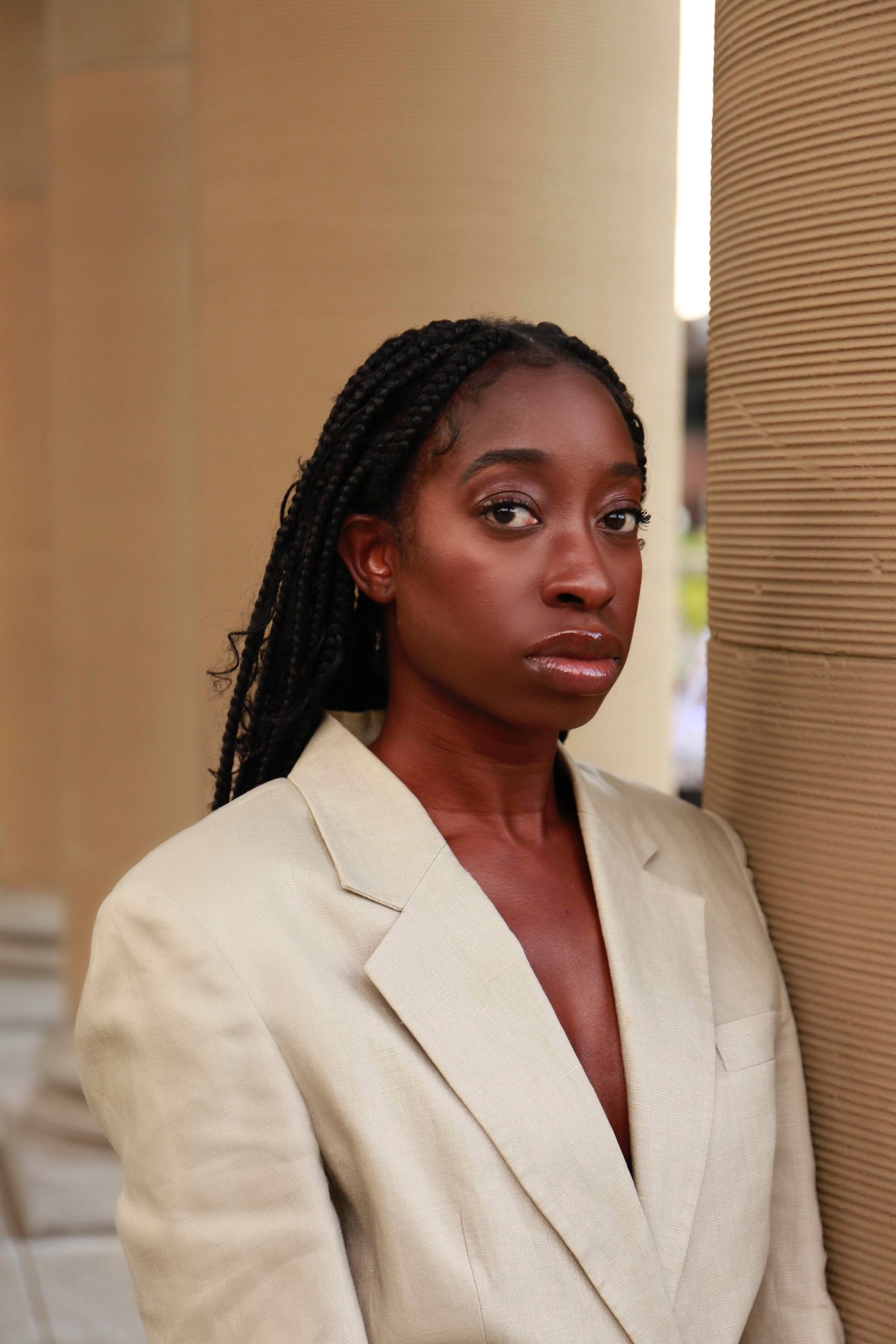
Lara Adekola, Beauty Writer and Social Media Strategist
What constitutes a sustainable beauty brand?
It’s complicated because there isn’t a one-size-fits-all definition or regulation on sustainability claims in the beauty industry. However, to me, a sustainable beauty brand is one that’s committed to creating products with minimal harm or impact on the environment throughout its entire life cycle. That applies to everything from the company’s business practices to ingredients being clean and ethically sourced to the packaging itself.
Are there certain sustainability claims that you consider greenwashing?
A lot of beauty products tout the label green, organic or environmentally friendly when they’re really not. While it’s a well-known marketing tactic, this can be extremely misleading to consumers who are already conflicted by a variety of messages. For example, a product might have one or two organic ingredients, call itself organic or natural yet still contain synthetic ingredients or pesticides.
Where do you think brands or companies fall short when it comes to sustainability?
Brands need to think about sustainability on a holistic level. If a product is vegan, cruelty-free and has nontoxic ingredients, but the components or mailer that it’s shipped in is made of materials that aren’t recyclable and will end up in a landfill, then it’s not truly sustainable. We need to look at it from a top-down and bottom-up approach. Also, brands can do a better job of educating consumers by providing explainers on how to properly recycle their products or ways to upcycle them. Saie Beauty and Susteau are already doing this by partnering with companies such as Pact for recycling programs.
What brands or companies do you think are doing a good job on the sustainability front?
There are a plethora of beauty brands that are making strides in sustainability. Clean with Plus, a body care brand knowns for its waterless body wash sheets, features zero single-use plastics and innovative bio-renewable sachets that dissolve down the drain. They also allow customers to donate a portion of their proceeds to an environmental nonprofit of their choice. Fenty Skin uses travel-friendly refillable inserts to reduce excess packaging waste.
Hanahana Beauty, which produces its shea butter in Ghana, ensures that its ingredients are clean and ethically sourced, and the women in the shea trade have access to proper economic and healthcare benefits. They have a social impact program to help protect the shea trees plus community-led clean-up and recycling days.
Retailers such as Sephora and Credo Beauty have sustainability initiatives that prohibit the use of harmful ingredients in their products and a corresponding seal to notify customers that it meets the clean requirements and empower them when purchasing.
Any advice for brands or companies hoping to do better?
Educate consumers on the action steps that they’re taking to be sustainable and make it part of the brand DNA, not only during Earth Month when it’s trendy, but as an overarching mission. Run consumer-based surveys or engage with their audience on social media to better understand how they can improve their products. Be honest with customers about their long-term goals, roadblocks and efforts.
Being sustainable is not always a cheap endeavor, especially for many startups or self-funded companies, it can be challenging. However, customers appreciate transparency, want to feel like they are part of the brand journey and will be more invested in a brand if their goals are aligned.
From a product development standpoint, multifunctional products are the future. If you can create a product that serves many purposes, whether a blush that doubles as lipstick or a dual-ended highlighter and contour stick, for example, it’s simply more practical because less is more for the environment.
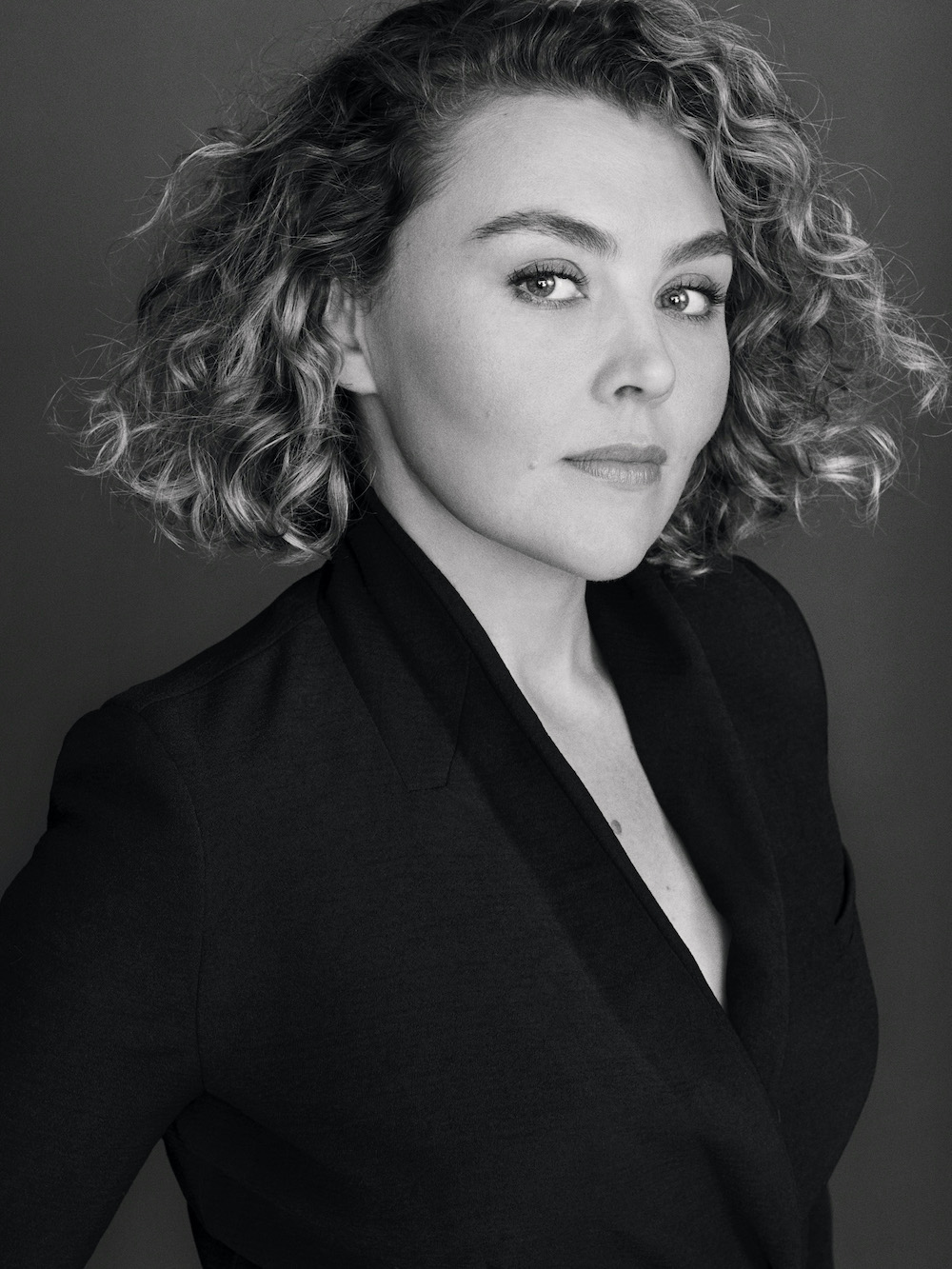
Katie Becker, Beauty Writer and Consultant
What constitutes a sustainable beauty brand?
The ultimate ideal is a brand that leaves no negative footprint in energy, materials or waste. Because this isn’t really achievable commercially, my current standard for sustainable is a brand that is at the cutting edge of what *is* possible and able to reduce its energy, materials and waste as much as they can.
Are there certain sustainability claims that you consider greenwashing?
A big one I see a lot of is brands saying their packaging is recyclable when it’s not commonly recyclable. It’s either in a plastic that isn’t processed in most municipalities or, if it is a commonly processed plastic, it’s too small to be accepted.
Five years ago, greenwashing was mostly about brands saying they’re green and natural because they use like honey and eucalyptus. That still exists and is extremely frustrating, but I now also lump these fake recyclers into the same category.
Another form of greenwashing is paying for certain seals and affiliations that don’t really hold them accountable. I really love the idea of 1% for the Planet, for example, but, if you’re working with them and simultaneously neglecting your ethical responsibilities to do your homework as a company and reduce your energy, materials and waste, that’s greenwashing, too.
Where do you think brands or companies fall short when it comes to sustainability?
During my research, I found that the math around “carbon footprint” is fuzzier than we’d like to believe. I have not gotten clarity myself. I would really love for the industry to have a more honest conversation about these numbers and where they’re really coming from. It’s so hard for a brand to track its full footprint. There are so many vendors along the way and hard to investigate their practices. I do not envy or belittle the job of accumulating that info. It’s a ton of work, but I think there are experts and organizations that can audit their processes and help them see the holes and gaps.
I had one of the OG green beauty brands recently send me a mailer with custom-cut foam in a non-recyclable glossy box. It was odd. This dissonance happens too often. More specifically, I think packaging still needs work. And I think in the future we will hear more about appropriate ingredient sourcing. Hint hint: It’s not always good for “active botanicals” to be taken from the planet in large quantities if it becomes environmentally disruptive.
What brands or companies do you think are doing a good job on the sustainability front?
This is difficult to answer because every brand has issues, but I really really admired when Dove switched to PCR plastic with the “beauty marks.” I had no idea that the industry prized pristine plastic so much that it rejects a lot of the PCR material. I really don’t think consumers notice.
There are small brands also shifting the way we think about packaging that I like such as Common Heir. I also admire Amyris shifting the way we think about sustainable ingredients. I think biotech ingredients can be really helpful for protecting limited botanicals. (Disclosure: I have done branded content work with Amyris.) I’m also fascinated by Loop, Uni and Izzy, which are working on “milkman”-style reusable packaging systems.
Any advice for brands or companies hoping to do better?
Get competitive. Be willing to be scrutinized. Make growth and change part of your ethos. Spend some money gathering information about the new ideas out there, call in those consultants, and know that your decision can’t be perfect, but can be progressive.



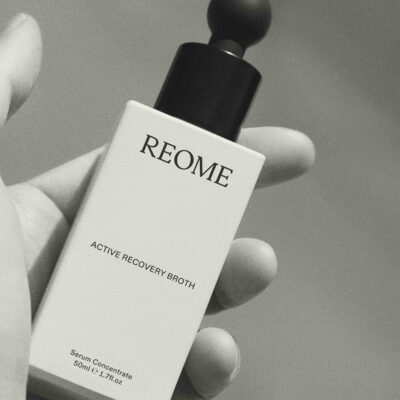
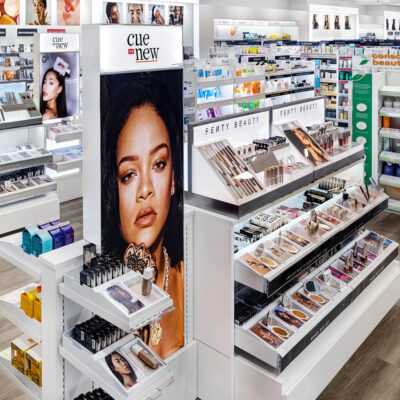
Leave a Reply
You must be logged in to post a comment.